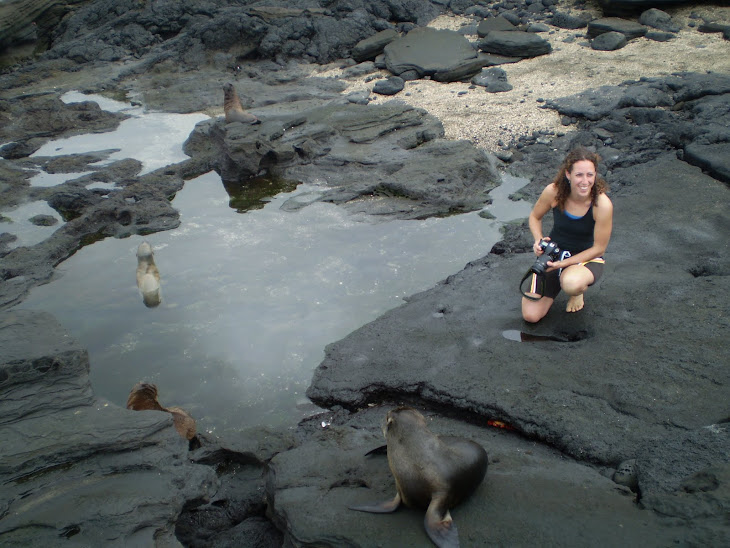For the last 6 years, I have had the
pleasure and opportunity to lead a variety of natural history and wildlife
trips for Natural Habitat Adventures. From guiding beluga whale trips in
Northern Canada to panda bear and Asiatic black bear trips in China, I have
been very fortunate. But the trip with the highest potential for impact is the
polar bears of Churchill. And it is about time that I write a blog about
this! (Check out WWF's write up about me!)
In brief, this trip involves bouncing along
in giant vehicles (e.g. the height of the tires are above my head) to witness
the polar bear migration to the shores of the southern (West) Hudson Bay as
they (impatiently) wait for sea ice to form.
The trip is more than just about viewing
polar bears. The trip is about understanding bears as the magicians that they
are. Everything is a phenomenon in polar bears. From the pregnant females that
"hibernate", the dropping of scat during "walking
hibernation", the need for sparring practice, the viscosity of their
tears, and much more, polar bears are a true marvel of nature. Slaves to their
extreme ability to pick up scents, polar bears are wondrous animals to observe
as they choose paths that might elicit their curiosity.
It is easy to understand this type of drive
in polar bears as they figure out their world. We seem to share this ambition
to find and get to the end of our individual worlds. I once heard that
searching for meaning in our lives is better than living a life of avoiding discomfort.
This was a stress study in humans that
showed that harnessing the positives of stress was possible. Physical stress is
a way that our bodies prepare us for events but there is a way to maintain a
normal blood vessel dilation, with a raised heart rate (e.g. that feeling in
your chest when you know your heart is racing due to some event or thing that
is stressful). This study showed that reaching out to others and using our
ability to be compassionate towards each other is one way of doing just that to
handle stress. In other words, stress can lead to compassion, which can lead to
courage.
What is the connection with this and polar
bears? Well, the future of polar bears stresses me out. And polar bears elicit
compassion in multiple ways. My clients on the trips I lead often marvel at how
"cute" bears are, and usually someone will say out loud how much they
want to give them a hug. I can see why they think that, but we need to remember
that polar bears are not adorable; they are majestic and awesome - in the real
sense of the word “awe”.
This leads me to wonder about using the
effect of polar bears on people to take on courageous acts to preserve what is
important to us (e.g. healthy free-roaming animals and their habitats, clean
water, ecosystem productivity, etc.). Members of the environmental movement
since the 1970s (and even before) have tried to drive that kind of change many
times over with telling images of our world changing. Along those lines, there
is nothing quite like looking into the eyes of a wild polar bear and having
that moment define what you might say and do back on a street corner in a
bustling city.
I believe a balance is possible in all
this, but we are far from sorting out our political (including economic and
social) and environmental dilemmas and internal struggles. Personally, I
struggle with the environmental impacts of the choices I make in my life.
It is not easy for anyone, really. But we
have to try to help each other out, if anything, for the sake of the future of
the reigning king of the arctic kingdom, the polar bears.



